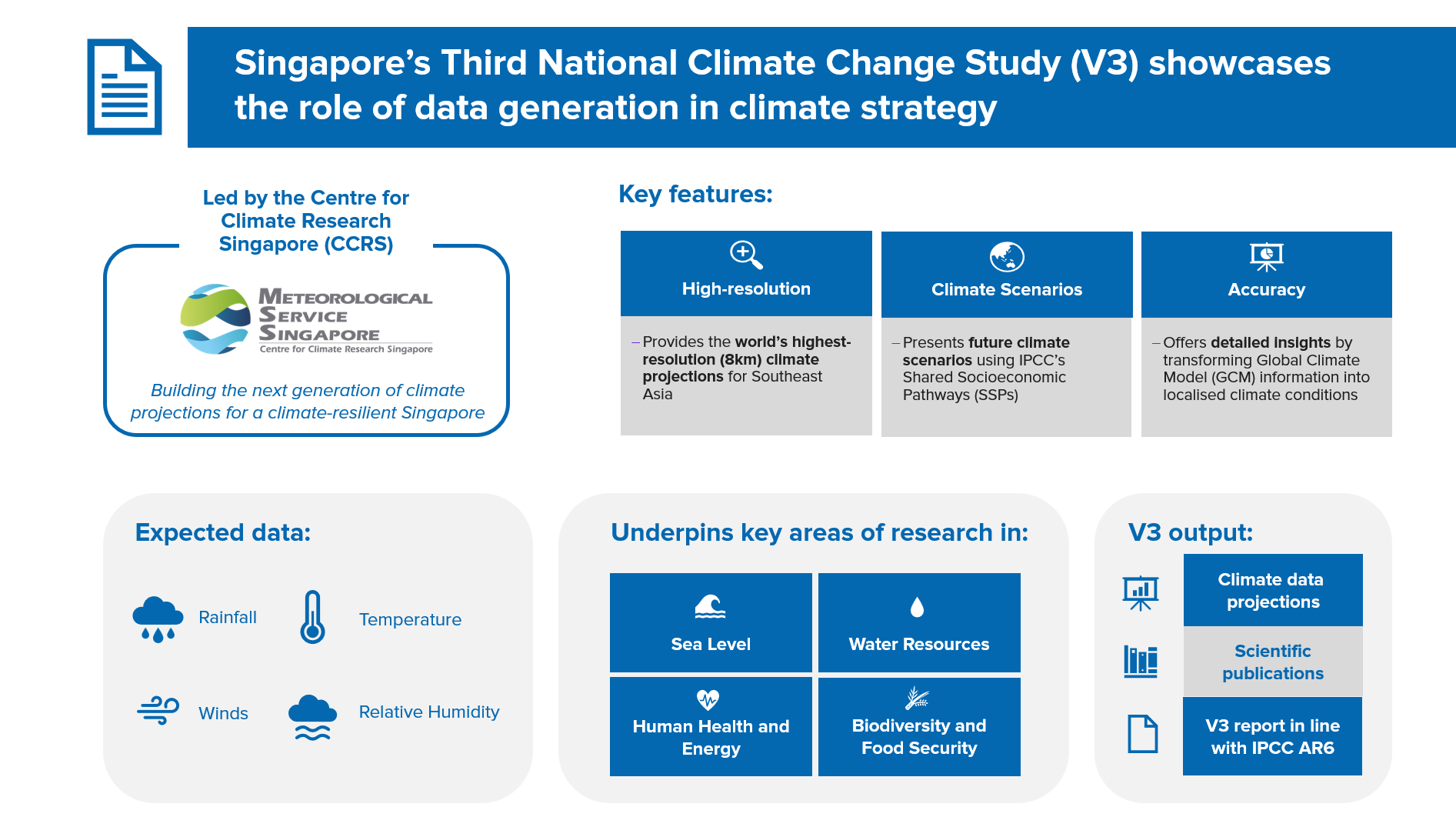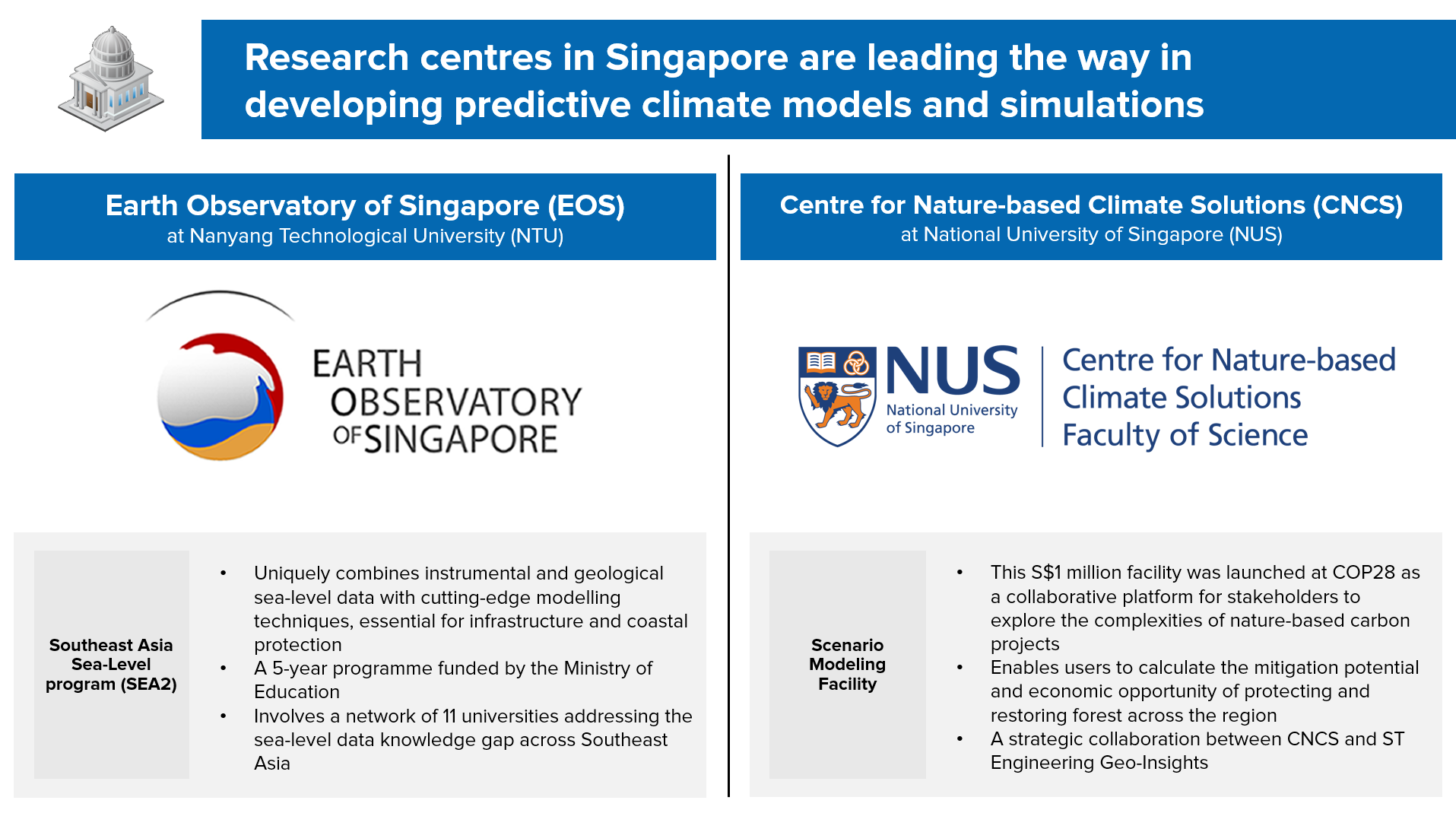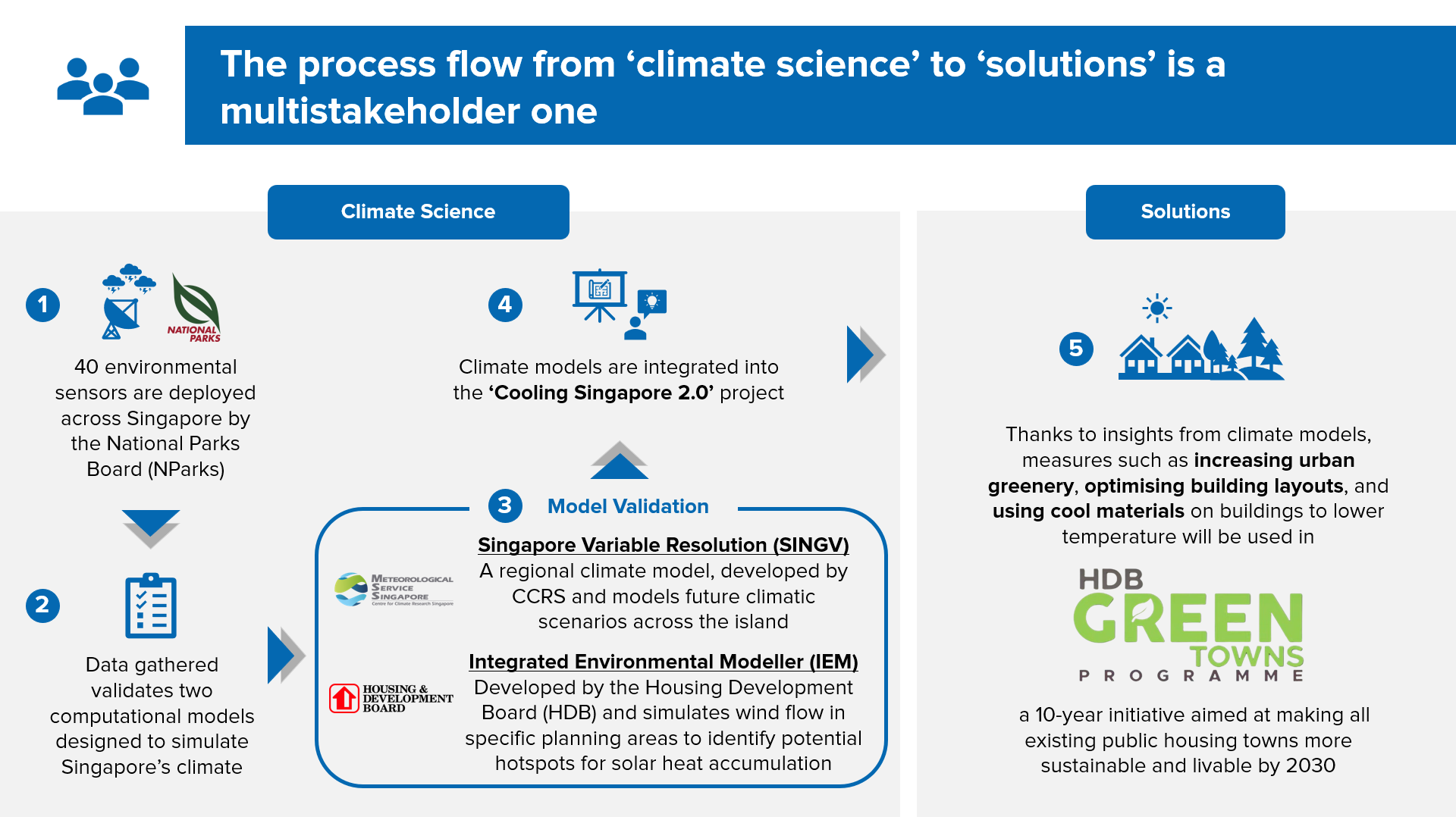This is the second article of our Article Series titled Accelerating Innovation: A Multistakeholder Ecosystem Approach to Tackling Climate Change
Understanding Our Climate: Singapore’s Journey from Data to Action
April 8, 2024

In the fight against climate change, knowledge wields immense power. Gaining a precise understanding of our climate dynamics is indispensable in charting the right course forward. As we face potentially irreversible climate changes, with limited financial resources and entire ecosystems at stake, it is essential that climate strategies are firmly backed by science.
This article showcases how Singapore is harnessing the power of data and science to understand climate change and translate research into practical solutions underpinned by a multistakeholder approach.
Data Generation: The Backbone of Climate Strategy
Recognising that data is the cornerstone of developing effective climate strategies, Singapore has made significant strides in bolstering its data generation and collection capacity. To generate essential data for understanding climate change, the Centre for Climate Research Singapore (CCRS) released Singapore’s Third National Climate Change Study, also known as V3, on 5 January 2024. This comprehensive study presents and examines the effect of climate change under different scenarios. Using the supercomputing facility at Singapore’s National Supercomputing Centre (NSCC), CCRS generated and analysed billions of climate data points spanning more than one century for Singapore and the Southeast Asia region, providing more localised and detailed projections.

Info 1. Central to Singapore’s strategic approach to climate change is the role of data generation
Transforming Data into Dynamic Climate Models
A crucial aspect of the V3 Study involves the development of advanced climate modeling techniques to anticipate future climate conditions and impact. Models are vital for planning urban development, disaster management, and formulating long-term sustainability strategies. In Singapore, university research centers are leading the way in developing these predictive models and simulations, as is the case of the Earth Observatory of Singapore (EOS) at Nanyang Technological University (NTU).
EOS plays a pivotal role in providing regional climate data and modeling, with multidisciplinary teams researching earthquakes, volcanic eruptions, tsunamis, and climate change. A key initiative is the SouthEast Asia Sea-Level program (SEA2), which uniquely combines instrumental and geological sea-level data with cutting-edge modeling techniques, essential for infrastructure and coastal protection.
Another prominent example of climate modeling is led by the Centre for Nature-based Climate Solutions (CNCS) at the National University of Singapore (NUS) and ST Engineering Geo-Insights. This S$1 million scenario modeling facility helps stakeholders navigate the complexities of nature-based carbon projects. This platform calculates the impact and economic benefits of forest conservation in 10 countries in Southeast Asia (SEA).

Info 2. Transforming data into dynamic climate models
From Concept to Action: Translating Climate Science into Practical Solutions
Investments in data generation and modeling must evolve into practical actions to enable countries to fully harness their benefits. Singapore's approach to combat the Urban Heat Island (UHI) Effect - a phenomenon where urban areas, which are more built-up and densely populated, are warmer than rural areas- demonstrates this translation into practice.
To illustrate, the National Parks Board deployed 40 environmental sensors to study the UHI effect, contributing data to validate two climate models (refer to infographic 3). These models support the 'Cooling Singapore 2.0' project, which employs a digital city twin to evaluate UHI mitigation strategies and informs initiatives like the HDB's Green Towns programme to better plan climate adaptation strategies.

Info 3. From concept to action: translating climate science into practical solutions
Singapore's Contribution to Advancing Regional Climate Science
Singapore's scientific advancements have significantly improved climate intelligence not only for the nation but also for the wider SEA region. On this, Singapore’s latest initiative is the Climate Transformation Program (CTP). Led by EOS and with a budget of S$50 million, CTP aims to develop knowledge-based solutions and educate future leaders to build resilient, just, and sustainable Southeast Asian societies. Importantly, it will encourage cross-sector participation, ensuring that its research and solutions are accessible to policymakers throughout the SEA region.
“Climate science is not just a field of study; it’s a crucial tool for our survival. By embracing a holistic approach to science and harnessing high-quality data, various actors, especially governments are empowered to effectively respond to climate challenges. Singapore’s work on climate science is more than a national effort; it’s a vital contribution to the global understanding of climate change and serves as a clear demonstration of the power of targeted, local action in the fight against the climate emergency, reinforcing the pivotal role of science in securing our sustainable future.”
Remarks Professor Benjamin Horton, Director of the Earth Observatory of Singapore
This is the second piece of our Article Series with the Singapore Economic Development Board (EDB). Find out more about the series and read the other articles here.

 Locations
Locations